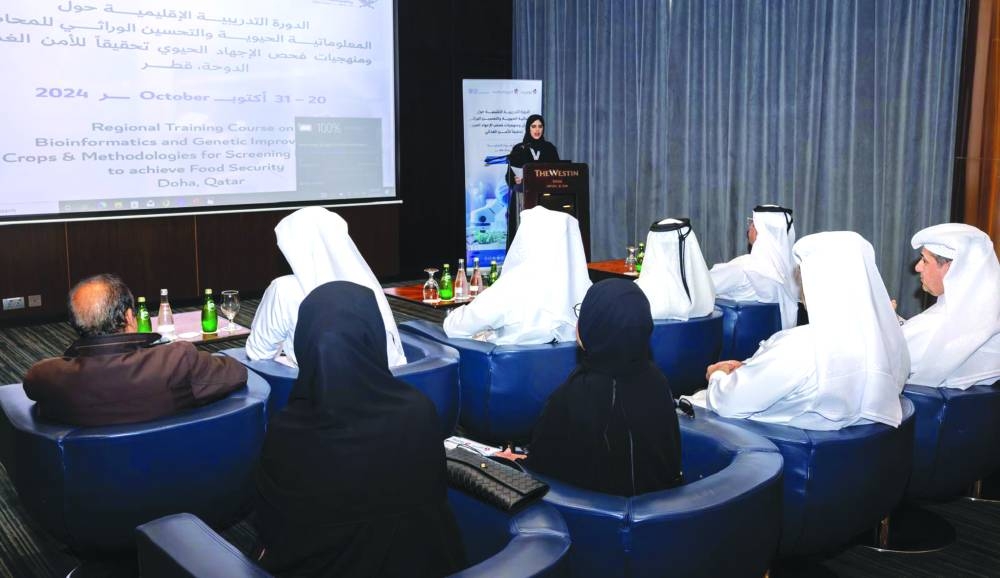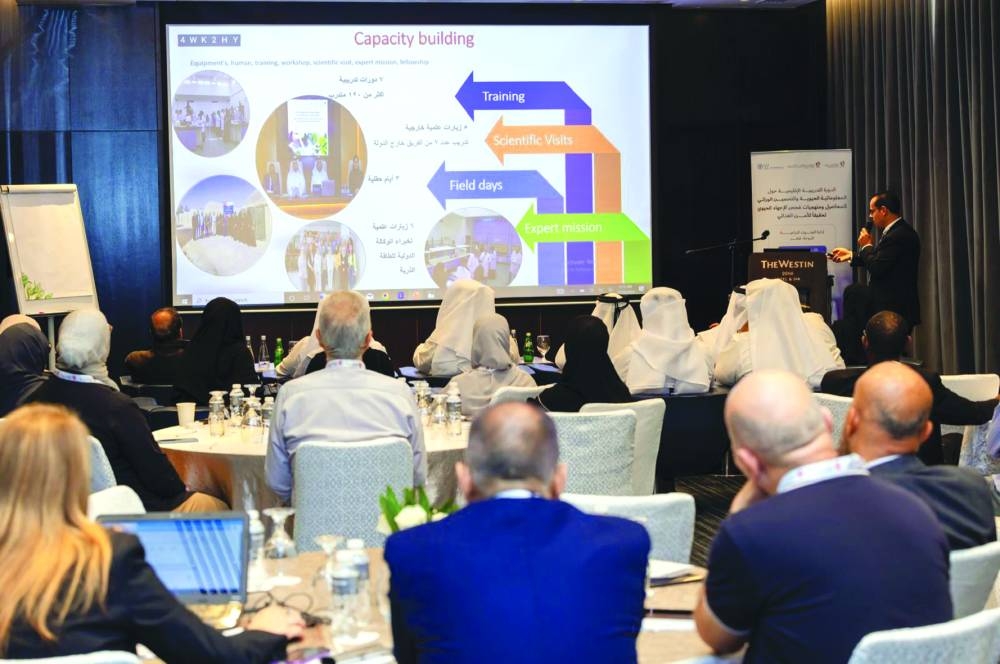The Ministry of Municipality is conducting a regional training course titled "Bioinformatics and Genetic Improvement of Crops and Methodologies for Screening to Achieve Food Security," held from October 20 to 31.
Organised in collaboration with the International Atomic Energy Agency (IAEA) and the Ministry of Environment and Climate Change, the course includes participants from Qatar, Gulf states, Jordan, Lebanon, Syria, Iraq, and Yemen. The training covers essential topics, including an introduction to crop genetic improvement, traditional and mutation-based breeding techniques, molecular approaches to biological stress resistance, advanced screening methodologies, and future prospects for genetic enhancement.
Director of the Agricultural Research Department at the Ministry of Municipality, Hamad Saket al-Shammari, emphasised the significance of peaceful atomic energy applications in agriculture, highlighting its critical role in addressing global food needs and fostering self-sufficiency in food production. He added that mutation breeding and genetic engineering techniques help improve plant traits to better adapt to local environments, enhancing productivity.
Al-Shammari also pointed out the agricultural challenges specific to the Arab region, such as water scarcity and harsh desert climates, noting the potential of nuclear technology to support the development of drought-resistant and climate-resilient crop varieties, thus strengthening local and global food security.
He stressed that this course aligns with Qatar National Vision 2030, which seeks to diversify income sources, achieve self-sufficiency, and ensure food security. Al-Shammari commended the IAEA for providing technical support and expertise to ongoing research projects in the region, including the RAS5099 regional co-operation project focused on enhancing crop species and agricultural technologies.
He further emphasised that nuclear technologies in agriculture align with environmental sustainability goals by minimising pesticide use and optimising water consumption, helping to protect natural resources for future generations.
According to al-Shammari, the main objective of this course is to equip experts, researchers, and technicians with the skills needed to harness bioinformatics and crop genetic improvement, significantly advancing the agricultural sector in the Arab region in line with the UN Sustainable Development Goals (SDGs).
Assistant National Liaison Officer, Abdulrahman al-AbdulJabbar echoed the importance of nuclear applications in agriculture, noting their impact on boosting agricultural productivity, enhancing crop quality, and achieving environmental sustainability.
In turn, Head of the Genetic Resources Department at the Agricultural Research Department, Aisha Dasmal al-Kuwari highlighted the role of nuclear technology in fostering pest- and disease-resistant plant varieties, thereby reducing the dependence on chemical pesticides. She added that these technologies help create crop varieties that use water more efficiently.
Mohammed al-Azzazi, a biotechnology expert at the Ministry, presented on the peaceful applications of atomic energy in Qatar's agricultural research. He detailed several collaborative projects with the IAEA, including QAT5006, which enriches genetic diversity and conserves plant resources; QAT5008, which focuses on soil, nutrient, and water management best practices; and RAS5099, which promotes climate-smart crop production, noting the positive outcomes of these initiatives.
This training course falls under the RAS5099 regional technical cooperation project, which aims to promote climate-smart crop production and boost crop productivity through nuclear technology. It is part of Qatar's continuous efforts to build food security and sustainable agriculture capabilities, underscoring the nation's commitment to adopting advanced scientific solutions to tackle regional environmental and climate-related agricultural challenges. (QNA)


